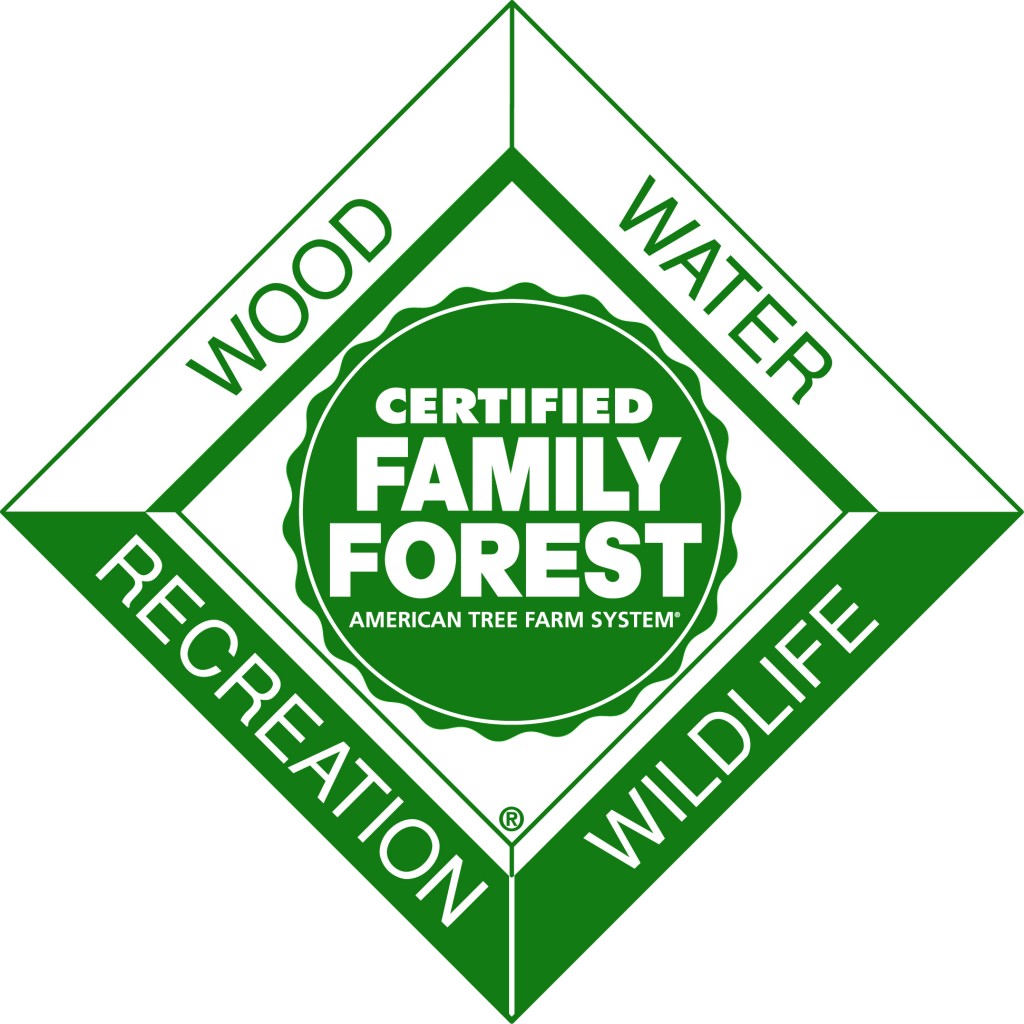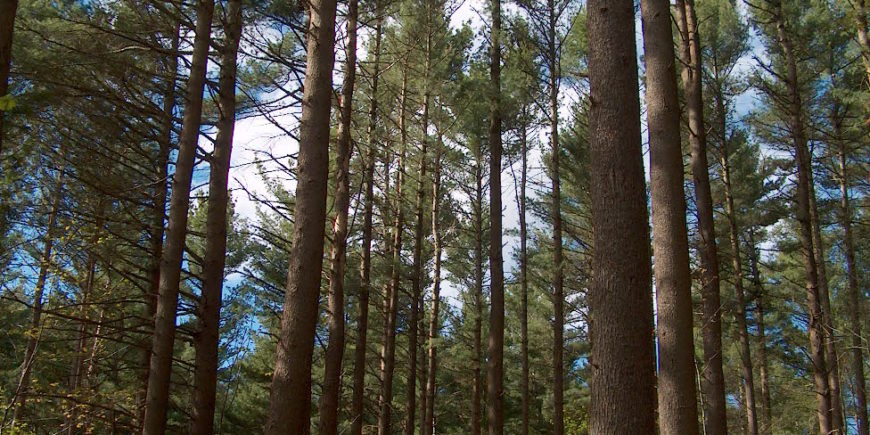The coronavirus has disrupted everything in Massachusetts this spring, and this year’s Tree Farm assessment was no different.
Every 4 or 5 years, a number of randomly selected Tree Farms in Massachusetts are reviewed by a third party assessor to see how well they are managed to comply with the American Forest Foundation’s current Standards for Sustainability. The assessments provide an opportunity to see how local properties’ management meets national and international standards, and what can be improved.
In May, culminating a nine month effort, the 2020 Massachusetts Tree Farm assessment was completed successfully, thanks to the efforts of Tree Farmers, consulting foresters, and the Tree Farm administrator. The 15 Tree Farms in Plymouth, Norfolk, Worcester, Hampden and Hampshire counties that took part were all found to meet the AFF Standards, and many were found to have taken extra steps that exceeded it.
 While this year’s assessment again showed that Massachusetts Tree Farms are well managed by caring landowners, the process had to be a bit different. In prior assessments in 2011 and 2015, the state Tree Farm Committee got copies of the management plans and Forest Cutting plans for the 15 Tree Farms selected for the assessing forester to review. Then the forester and members of the committee would spend three days traveling around the state visiting each of the 15 Tree Farms, talking with the Tree Farmers and foresters, and seeing how management was actually carried out on the ground.
While this year’s assessment again showed that Massachusetts Tree Farms are well managed by caring landowners, the process had to be a bit different. In prior assessments in 2011 and 2015, the state Tree Farm Committee got copies of the management plans and Forest Cutting plans for the 15 Tree Farms selected for the assessing forester to review. Then the forester and members of the committee would spend three days traveling around the state visiting each of the 15 Tree Farms, talking with the Tree Farmers and foresters, and seeing how management was actually carried out on the ground.
This year, due to the necessity for social distancing for the coronavirus, the on-the-ground visits couldn’t be held. Just lining up the 15 Tree Farms proved to be a challenge as two of the initially selected Tree Farms had to drop out, one because it was being sold, and another because the owner was hospitalized with the virus.
Once those issues were finally worked out, Tree Farm administrator Greg Cox set up hour-long telephone interviews for each Tree Farmer and their forester to talk with James Lucas, the Price Waterhouse Coopers forester from British Columbia, who had previously read each Tree Farm’s management plans and any recent Forest Cutting plans for the properties. Lucas discussed with each Tree Farmer what their goals were for their woods, how they were managing them, and how they protected rare habitats or special sites and dealt with invasive species.
A number of Tree Farms were found to have exemplary practices, including planting white pines to diversify a woodland, building a sugarhouse with wood from their property, reclaiming cranberry bogs for native woodlands, doing major cleanups of environmental pollution from a previous landowner, investing in major roadwork and bridges to provide access, creating early successional habitats, rerouting an access road to avoid erosion prone slopes, hosting Woods Walks, Field Days, and Game of Logging training, and setting aside areas to protect sensitive habitats.
Lucas said that he was impressed by the state’s process for reviewing, permitting and checking timber harvests for compliance, and the use of mandatory Best Management Practices to protect streams, wetlands & sensitive habitats, contrasting it with practices in British Columbia where he lives.
A brief review of Lucas’ preliminary findings was held on June 8th with no significant issues in compliance with the AFF standards found.
Tree Farmers taking part in this year’s assessment included New England Forestry Foundation, Hull Forestlands, Thomas Gryzbowski, Moss Hill Trust, Rich Julian, Ron & LuAnn Benoit, Ralph Mann, Holly & James Robert, Byron & NancyStutzman, Rene & Renee Fleuette, Donald Raymond, William Bancroft, Bob Moynagh & the Town of Plymouth.
Foresters who helped with the assessment included Mark Mueller, Chris Pryor, Ross Hubacz, Craig Masterman, Scott Gerrish, and Phil Benjamin.
